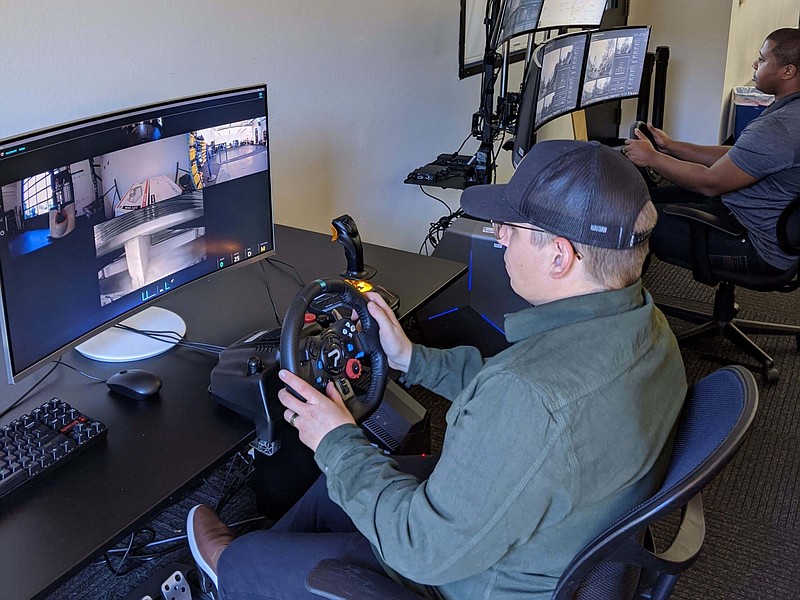Phantom Auto, a California-based startup focusing on remote vehicle operation, has struck a deal to provide logistics equipment heavyweight Mitsubishi Logisnext Co. with software that enables forklifts to be operated remotely from thousands of miles away.
A unit of Mitsubishi Heavy Industries, Kyoto-based Mitsubishi Logisnext is the third-biggest company in the $45 billion-plus global market for forklifts. Via their tie-up, Bessemer Venture Partners-backed Phantom Auto and Mitsubishi will offer forklifts that can rove around a warehouse in California, controlled by workers sitting at a desk a continent away.
"We're moving warehouse workers into office jobs," Elliot Katz, Phantom Auto co-founder and chief business officer, said in an interview. Because it removes geographic labor restrictions and improves efficiency as drivers can be "teleported" into factories experiencing surges, the software offers the potential to knock 30% or more off forklift operation costs, Katz said.
The software fits a need that has become acute during the covid-19 pandemic. With online sales of everything from sweatpants to toilet paper booming, warehouses and distribution centers have had to quickly scale up their operations. Yet, at the same time, infection-prevention measures are forcing companies to limit the number of employees working on-site.
That's exacerbating an already existing labor crunch in the manufacturing and logistics sectors in economies like the U.S. where younger generations are turning away from manufacturing jobs. Deloitte estimates that as many as 2.1 million manufacturing jobs will go unfilled through 2030. Japan, as well, is grappling with a chronic shortage of workers across many industries.
Remote operation helps solve this issue because it offers access to new labor pools -- in different regions of a country or even abroad. The ability to control machinery from home or from an office also makes manufacturing and logistics jobs more appealing to workers seeking more flexibility and to avoid some of the risks of working on-site, according to Katz.
Beyond logistics applications, adding Mitsubishi to its roster of customers is a way for Phantom Auto to build revenue and scale its systems for potential deployment in autonomous vehicle fleets in the future, Katz said. To date, Phantom Auto has poured about $20 million into its teleoperation technologies, he said.
The idea is that future self-driving vehicle fleets will benefit from the added safety benefit of having humans on standby, ready to take control should automation encounter a situation it isn't capable of navigating on its own.
Robotaxis aren't a segment where there's broad deployment, leading Phantom Auto to focus first on the logistics space and delivery robots used by services such as Postmates, Katz said. But "our software is vehicle-agnostic so the same technology we're integrating into logistics vehicles today is ultimately what we'll introduce in robotaxi and commercial trucking cases in the future," he said.
